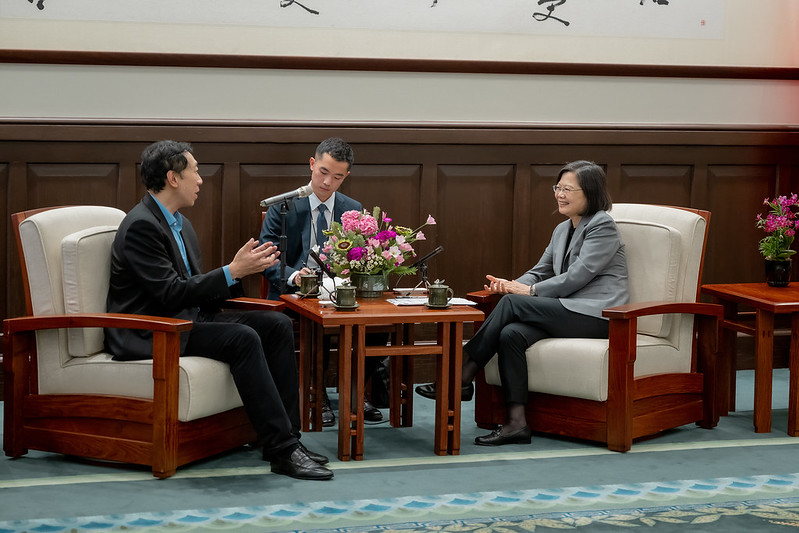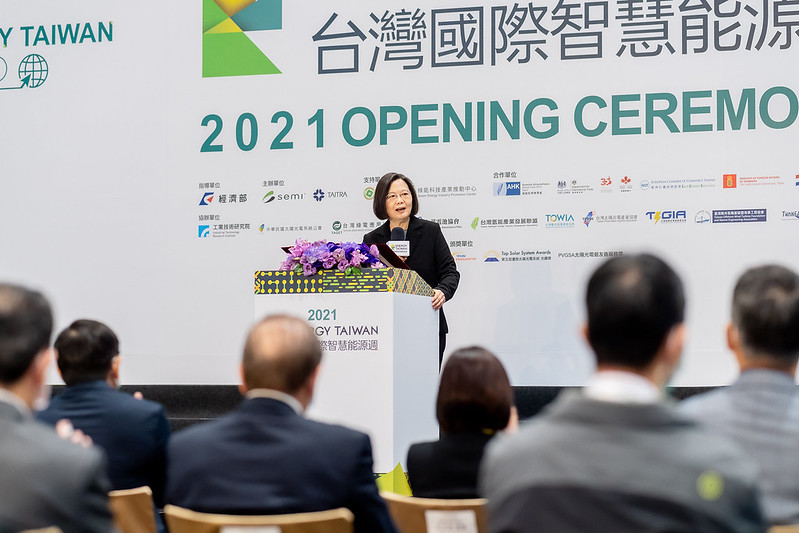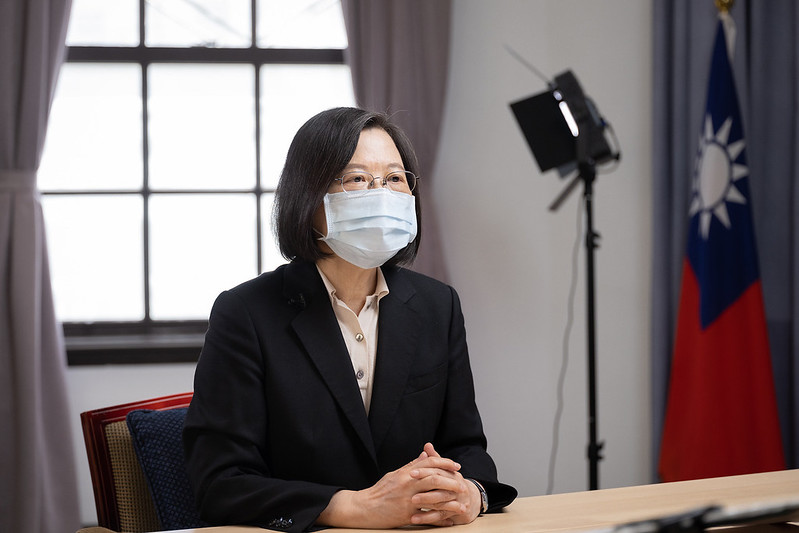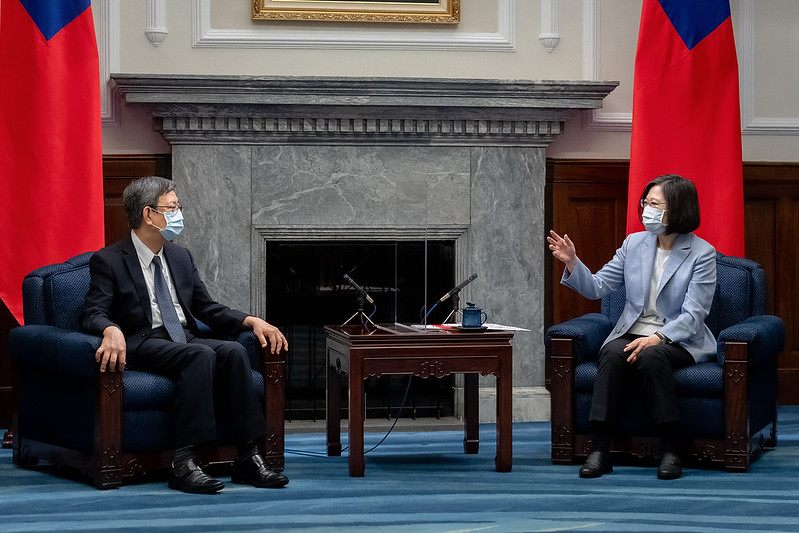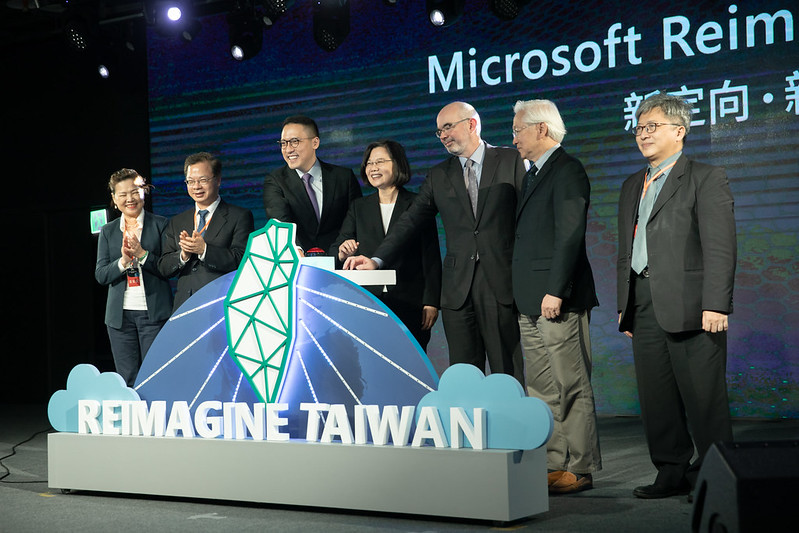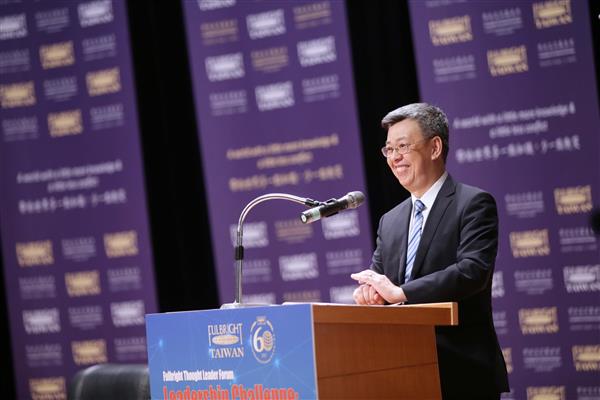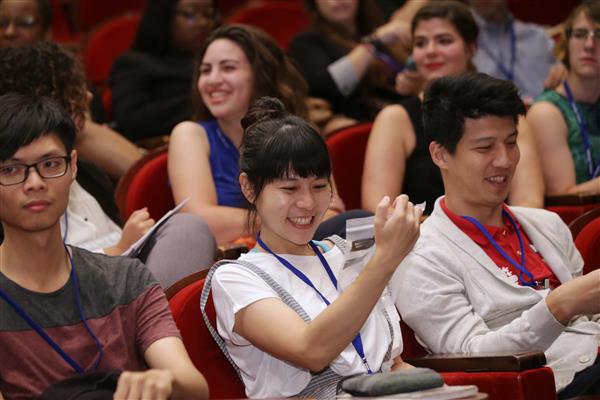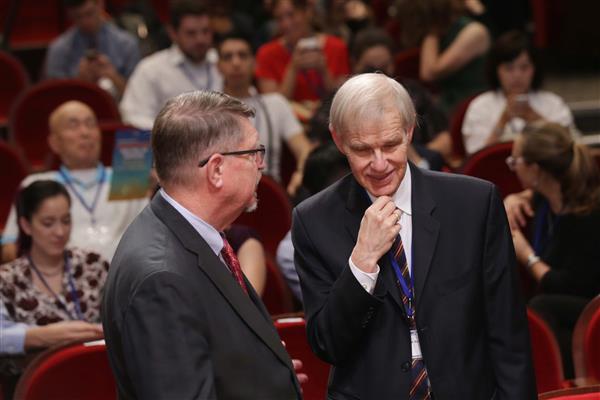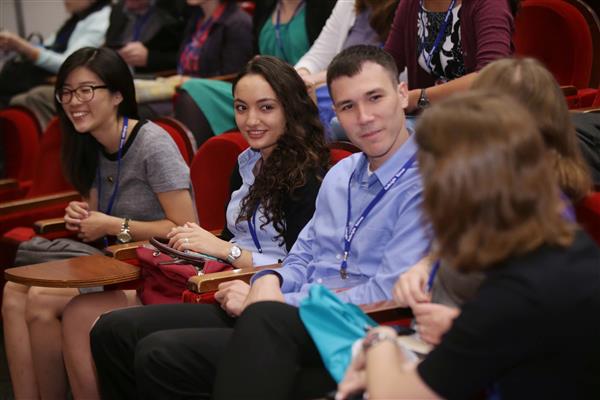News & activities
 News releases
News releases
On the morning of June 2, Vice President Chen Chien-jen delivered a speech at the opening ceremony of the Fulbright Thought Leaders Forum, "Leadership Challenge: Equity, Ethics, and Globalization," organized by Fulbright Taiwan.
A transcript of the vice president's remarks is as follows:
Dr. (William) Vocke, Deputy Foreign Minister (Paul Wen-liang) Chang, distinguished Fulbright fellows and alumni, ladies and gentlemen:
Good morning, everyone!
It is really my pleasure to join you. President Tsai Ing-wen cannot be here due to a scheduling conflict, but she specifically asked me to convey our deep appreciation.
Thank you, Fulbright Taiwan, for elevating our education and friendship for the past 60 years, and thank you, Dr. Vocke and your team, for carrying on this great legacy.
Here in Taiwan, we consider the 60th year to be a major milestone. When someone turns 60, we say 六十耳順, meaning that their moral senses are fully mature.
60 years is also a very special number in the Chinese calendar system. It represents a full cycle of completion and a new start.
So I would like to congratulate Fulbright Taiwan on completing 60 years of extraordinary accomplishments, and we believe the next 60 years will be even better.
I am here today to talk with you about leadership in the 21st century. But one of the most important lessons I ever learned about leadership actually from the 20th century – from my father.
He was the magistrate, or governor, of Kaohsiung County, so in our eyes, he was this powerful, larger-than-life figure. But he always reminded us that the power of any one person is limited.
Because of that, we should be open and inclusive; we should bring people together – and especially those who might disagree with us.
When my father passed away, the leader of an opposing political faction came to speak at his funeral. I will never forget it: this man was crying as he spoke of their deep friendship. So my father showed by example that politics does not have to drive people apart.
My father also tried his best to help the least of the brothers and sisters in Kaohsiung County. A good leader has to take care of the poor, the sick, the lonely and the needy. Pope Francis once said that authentic power is service, just like Jesus Christ came not to be served but to serve.
When I got my doctor degree from Johns Hopkins University in the US and came back to Taiwan, my father said: "Hey, you got a doctor degree, and you are not too bad-looking, why don't you run for office?" I said no, I wanted to go into science and public health. I think he was upset with me for many many months.
But, in my work as a scientist, I learned another important lesson of leadership: that is, to make decisions based on robust reasoning and evidence.
So these are three important lessons: bringing together people who disagree, authentic power is service, and having strong reasoning and evidence to support your decisions.
Let me give you an example in today's context.
Everyone knows that Taiwan needs reforms. Our economic structure, pension system, judicial system and so forth all need fundamental reform.
President Tsai, myself, and our team made a decision early on to address all the difficult reforms at the same time. And President Tsai asked me to lead maybe the least popular one – pension reform. It turns out that people do not like it when they get paid less.
But the fact is that the pension system is in big trouble, and would go bankrupt in a matter of years. People are going to retire and get nothing. The previous government tried to reform the system, and failed.
So I went to see the person who was leading that effort, to find out what happened. He told me that they thought the consensus was there, so they charged ahead, only to turn around and see that few were following.
And this is why, when we launched pension reform last year, we insisted on a process of dialogue. A lot of people said: "Don't have so many discussions! Just show us your reform proposal!" But we knew better.
We invited the representatives of all professions and sectors affected to join a committee at the presidential office level. And for nearly a year, we met and talked in 20 committee meetings, then regional meetings, and then a national conference, all broadcast live.
Many of the people disagreed with each other, and some meetings got very intense. If you watch this on the website, you can see that. But the process led to concrete reform proposals that are now being discussed in parliament.
Bringing together people who disagree is not the easy way to go. It gets loud, it gets messy. But it is the right way to go in a full democracy like ours.
Now, at the same time as we were holding the committee meetings, we were also conducting a lot of research, and making precise calculations of how the pension system can become sustainable.
So everything in the reform proposal is based on hard numbers and exact calculation. This way, every time someone objected, we can say: "Okay, then what do you propose? And do the numbers work?" We can bring the discussion back to reason and evidence.
Our parliament is still in deliberation, and success is not guaranteed. But we have gone farther than any government has ever gone.
When you bring people together for long and open discussions, they are more likely to support the result. When we realize that authentic power is service, you are more likely to be a public servant to take care of the inferior. And when the ground you stand on is reason and evidence, you are able to stand firm, and stand tall.
I am sure other scholars like today's outstanding speakers here can share many more and better lessons on leadership, but these are the three that I wish to leave with you.
Each of you is a rising star in your own field, and in the decades to come, we will look to you to lead us to a better future. It will not be easy. There are climate change, inequality, terrorism, aging population, pandemic and infectious disease and many more challenges that we cannot yet foresee.
But I am willing to bet that the ability to bring people together, to serve, not to be served, and to make decisions based on science and evidence, will remain as necessary as ever.
If you succeed in overcoming the challenges of this century, you will likely become a better leader than anyone in power today, and you will have better leadership lessons to impart to future generations. Trust me. You will become an outstanding leader with pure heart, clear mind, helping hands and strong shoulders to carry the responsibility.
So I certainly hope that I will be around to hear your successful leadership lesson in the future. Thank you very much.
